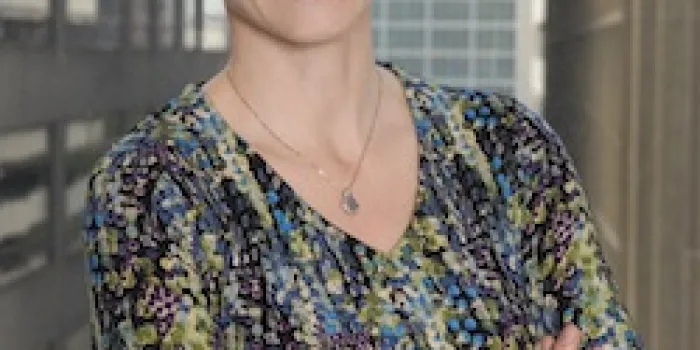HemAware is conducting a series of interviews with recipients of the NHF-Shire Clinical Fellowship. It is funded through the generous support of Shire. The objective of this grant is to increase the number of skilled clinicians committed to providing comprehensive care for individuals with bleeding disorders, and to prepare candidates for academic careers.
This interview was conducted with Rebecca Kruse-Jarres, MD, MPH, assistant professor of clinical medicine and assistant director of the Louisiana Center for Bleeding & Clotting Disorders at Tulane University in New Orleans. The fellowship was funded from 2004–2006.
Why did you decide to study medicine?
Kruse-Jarres is a native of Germany who came to the US to pursue nursing at Saddleback College in Mission Viejo, California. After completing nursing school, getting her RN license and working in the field for a while, she was ready to approach healthcare from another angle. “I loved my nursing job and caring for patients, but I was up for a little more of an intellectual challenge,” Kruse-Jarres says. She wound up studying medicine at Tulane University.
What initially attracted you to hematology?
Before entering medical school, Kruse-Jarres worked in the Blood & Bone Marrow Transplantation Program at Dartmouth-Hitchcock Medical Center’s Norris Cotton Cancer Center in Lebanon, New Hampshire, an experience that set her future course. ”I worked with some hematologists up there, and I was really fascinated in particular by some intriguing coagulation predicaments.”
How did the training and mentorship you received as an NHF-Shire Clinical Fellow affect your decision to pursue clinical care and/or research in bleeding disorders?
“It really solidified it,” says Kruse-Jarres. The NHF-Baxter Clinical Fellowship provided the means for her to stay in hematology. “It gave me the time to form a network and get more formal education.”
Are you still engaged in the clinical aspects of patient care or bleeding disorders research? What aspect of care are you most interested in?
“I’m conducting coagulation clinical care and research on a daily basis,” Kruse-Jarres says. Her research interest is in both congenital and acquired coagulation inhibitors. “The focus of my research is inhibitor formation and eradication. I am trying to understand the mechanisms and role of immune modulation in these patients.”
Did your NHF-Shire Clinical Fellowship assist in advancing your own position at your institution? Or did it serve as a building block to further your career in coagulation?
For Kruse-Jarres, the fellowship was a building block to advance her career: “It assured that I stayed in coagulation and didn’t wander off into oncology.” She feels that is the greatest strength the fellowship has to offer recipients at a critical decision-making point in their medical careers.
Where do you think bleeding disorders research and clinical care may be headed in the near future? Within the next decade?
In the short term, Kruse-Jarres is most excited about new products with longer half-lives. “That’s going to give us different ways to approach prophylaxis,” she says. In the longer term, she’s anticipating the ways gene therapy could change the landscape. “The gene therapy trials look promising, at least for hemophilia B. I wonder if that’s something that’s going to change the field in the next 10 years.”
What profession would you be in if you weren’t in medicine?
Without hesitation, Kruse-Jarres says, “I would be an artist. I had no intention of going into medicine when I was younger, but that’s a long story.” She describes art and photography as interests and passions, which she regretfully doesn’t have much time for these days. However, Kruse-Jarres knows she’s in the perfect place for at least one of her artistic pursuits. “I really love costume design, so I’m in the right city, being in New Orleans for Mardi Gras.”
Learn More:
How to apply for the NHF-Shire Clinical Fellowship.

